Ideally most of us have “Recovery Circles,” a group of people in our lives who love us, care for us, and provide help for us whatever life throws our way. Fundamentally, belonging is a part of the human condition.
Recovery Circles are part and parcel to the sustained recovery journey. Each Recovery Circle is made up of a small support group of diverse individuals. They agree to share honestly, respect that sharing and the privacy of others, and to be held accountable. Recovery Circles are led by trained facilitators. The role of the facilitator is to facilitate sharing and relying on the group to give feedback about challenges. The facilitator often does give feedback, but it’s not primary. The facilitator allows the magic of the group to work and doesn’t have an educator role.
Attendance
Attendance at a weekly Recovery Circle is a requirement of Membership. Café Membership is free; however, Membership serves as a model signifying responsibility and accountability to the Café community. Recovery Circles build self-esteem, while discouraging isolation which can trigger substance abuse and exacerbate mental health challenges. Recovery Circles are held once a week and last about an hour.
The Recovery Circle is a place where Members can:
- Surrender and acknowledge powerlessness over certain destructive attitudes and behaviors.
- Show up and surround each other with compassionate listening and accountability.
- Serve each other with our listening, feedback with permission, reliability, & commitment to honest sharing.
How Recovery Circles Work
While in the Circle, each person is given time to check in about their past week. These check ins can include big and small struggles, big and small victories, plans for the coming week, requests for feedback, support and/or requests for help. Recovery Circles create a sacred space where people can be their authentic selves in their brokenness, healing, losses, needs, hopes, regrets, and triumphs.
Recovery Circles provide a critical entry into community and reestablishing a sense of belonging. Practical benefits include much needed ways to receive informal resource referral and assistance information.
For many of our Members, their life circumstances or addictions have estranged them from their family and friends. They need a place to learn to trust again, practice healthy interactions and to be known and loved.
